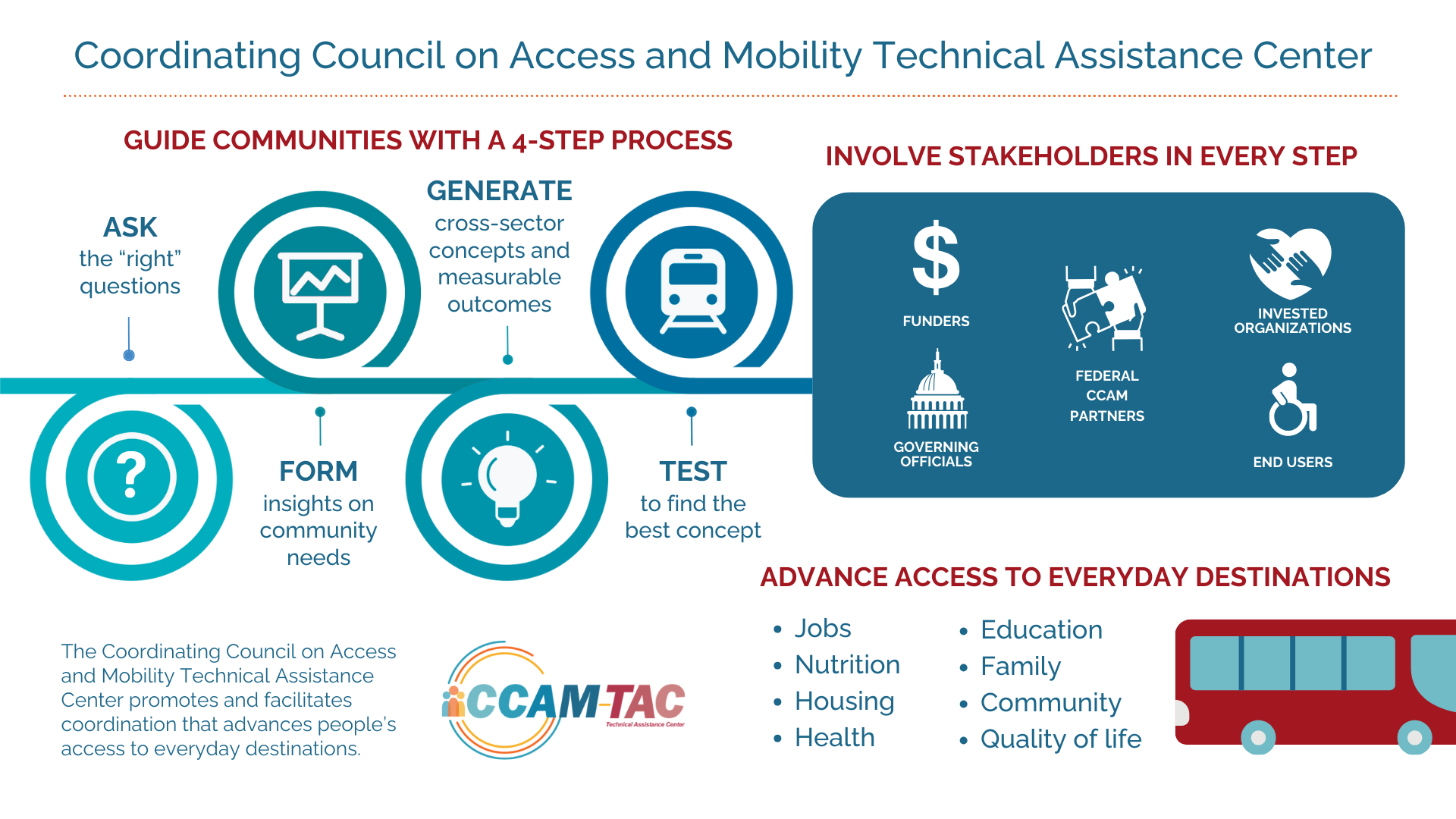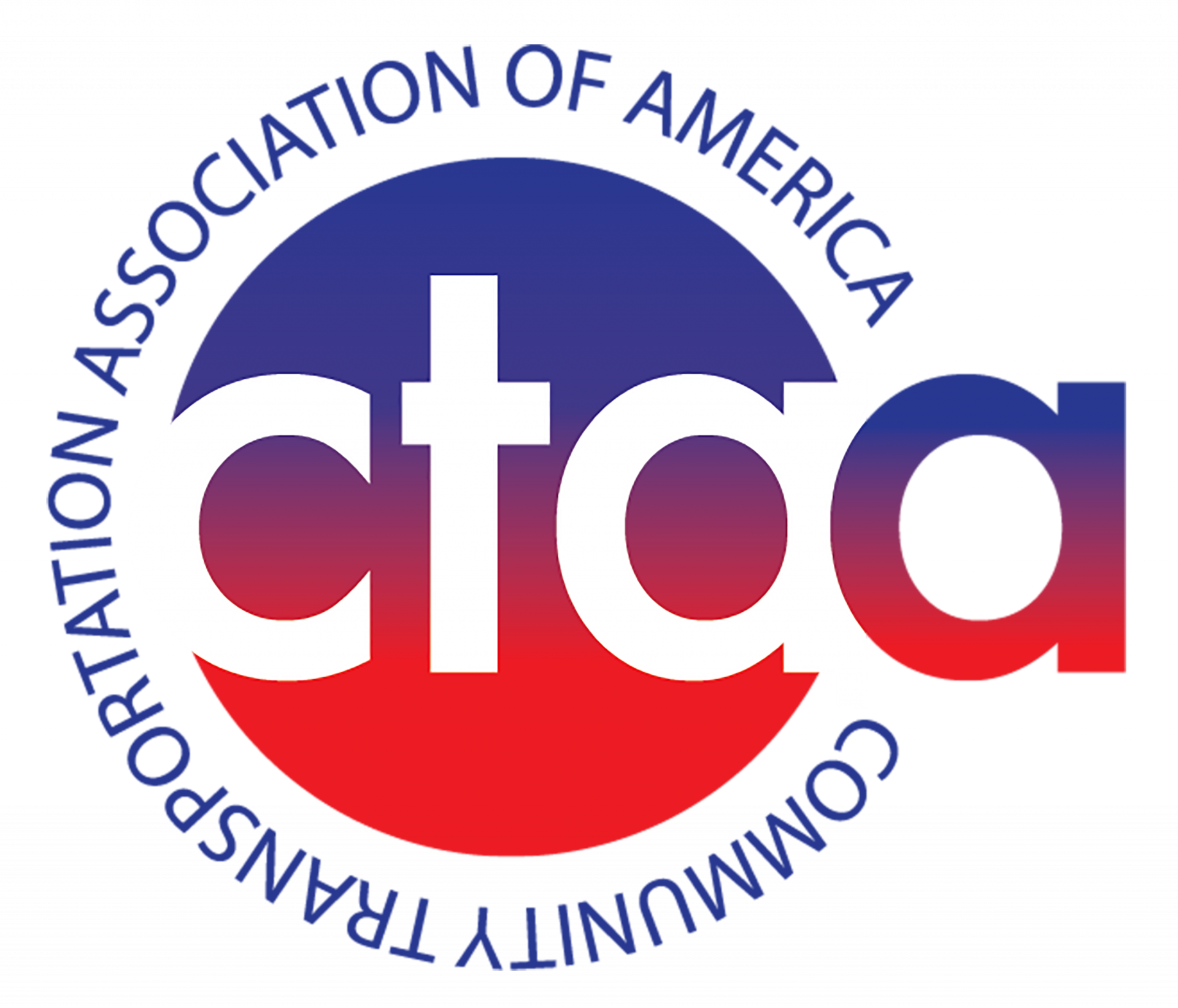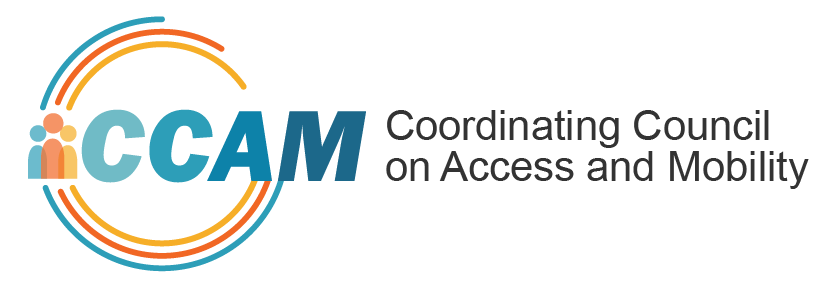The Coordinating Council on Access and Mobility Technical Assistance Center (CCAM-TAC) is a national technical assistance center funded through a cooperative agreement with the Federal Transit Administration (FTA) and operated by the Community Transportation Association of America. The CCAM-TAC is supported by the Federal CCAM-TAC Agency Partner Advisory Group:
- U.S. Department of Transportation’s Federal Transit Administration
- U.S. Department of Agriculture’s Rural Development
- U.S. Department of Health and Human Services’ (HHS) Administration for Children and Families
- HHS’ Administration for Community Living
- HHS’ Centers Medicare and Medicaid Services
- HHS’ Health Resources and Services Administration
- U.S. Department of Labor’s Office of Disability Employment Policy.
CCAM-TAC also receives advice, expertise, and support from the Content Partner Roundtable consisting of the American Association of Service Coordinators, American Public Transportation Association, Burton Blatt Institute of Syracuse University, Community Roots LLC, Health Outreach Partners, Justice Center: Council of State Governments, National Association of Community Health Workers, National Association of County and City Health Officials, National Community Action Partnership, National Organization of State Offices of Rural Health, RLS and Associates, Texas A&M Transportation Institute, and USAging.
CCAM-TAC is staffed by transportation professionals with expertise in many fields. We particularly focus on collaboration with other non-transportation sectors.
The mission of the Center is to promote and facilitate human services transportation, public transit, and non-emergency medical transportation (NEMT) coordination that advances people’s access to everyday destinations.
Strategic Goal of the Center
The strategic goal of the Center is to support CCAM members, Federal agencies, their grantees, partners, and stakeholders in improving transportation access for people with disabilities, older adults, and individuals of low income. The mission of the Center is to promote and facilitate human services transportation, public transit, and non-emergency medical transportation (NEMT) coordination that advances people’s access to everyday destinations.

Methodology
CCAM-TAC, in collaboration with the Federal Transit Administration (FTA) and stakeholder networks, will:
- Improve the safety, availability and efficiency of transportation options aligned with the CCAM through regional, state, and local coordination and strategic partnerships.
- Actively engage CCAM members, Federal agencies, their grantees, partners, and stakeholders to emphasize the important role of transportation in access to services and everyday destinations, and to provide technical assistance to reduce barriers to human services transportation coordination.
- Support and highlight the activities and initiatives of the CCAM, its workgroups, and partner agencies that improve Federal transportation coordination.
- Disseminate information, best practices, and communication campaigns to increase agencies’ awareness of available transportation resources and funding.
- Provide self-directed and customized technical assistance, training, and support services to CCAM members, Federal agencies, their grantees, partners, and stakeholders.
- Implement multisector planning and pilot grants to develop and test innovative regional or state-based transportation solutions.
- Research certain subjects for new transportation-related data, strategies, or insights.
CCAM-TAC Staff
CCAM-TAC staff can help research answers to your question, facilitate community meetings, bring trainings that inform your work, and provide other types of customized technical assistance. Contact information is below.
Bill Wagner, CCAM-TAC Director, 202-940-6036 – Biography
Areas of expertise: Transportation call center, grant writing, program management, transportation & housing for people with disabilities, Rural Health and Social Determinants of Health.
Kayla Casanova, Program Associate, 202-415-9661 – Biography
Areas of expertise: Housing, marketing strategies, cultivating relationships, utilizing trauma-informed approaches.
Grayson Lee, Program Associate, 202-940-6037
Areas of expertise: Accessibility, planning, public engagement, communications
TBD



